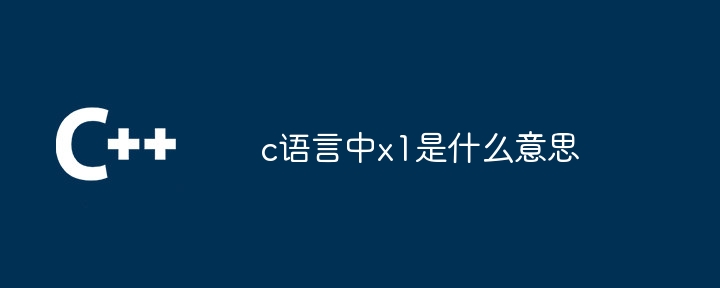
"x1" in C language usually represents a variable name or macro definition. It is not a special keyword or reserved word. It can be composed of letters, numbers, and underscores, but it cannot start with a number. Macro definitions need to be defined with the preprocessor directive #define, which is replaced with the actual value at compile time. Sometimes, "x1" may also represent a register name or a variable name in a naming convention.

x1 in C language
In C language, "x1" usually represents a variable name or macro definition . It is not a special keyword or reserved word in C language.
Variable name
"x1" can be used as a variable name to store integers, floating point numbers, characters or pointer values. Variable names can consist of letters, numbers, and underscores, but they cannot start with a number.
Example:
<code class="c">int x1 = 10; float x1 = 3.14; char x1 = 'a';</code>
Macro definition
"x1" can also be used as a macro definition, using the preprocessor directive #define Definition. Macro definitions are like constants, but can be replaced with actual values at compile time.
Example:
<code class="c">#define X1 10</code>
This code defines macro X1, whose value is equal to 10. Whenever X1 is encountered in the code, it will be replaced by the number 10 by the preprocessor.
It should be noted that macro names are usually capitalized to distinguish them from variables.
Other uses
In addition to variable names and macro definitions, "x1" is sometimes used for the following purposes:
But these uses are uncommon.
The above is the detailed content of What does x1 mean in C language?. For more information, please follow other related articles on the PHP Chinese website!




